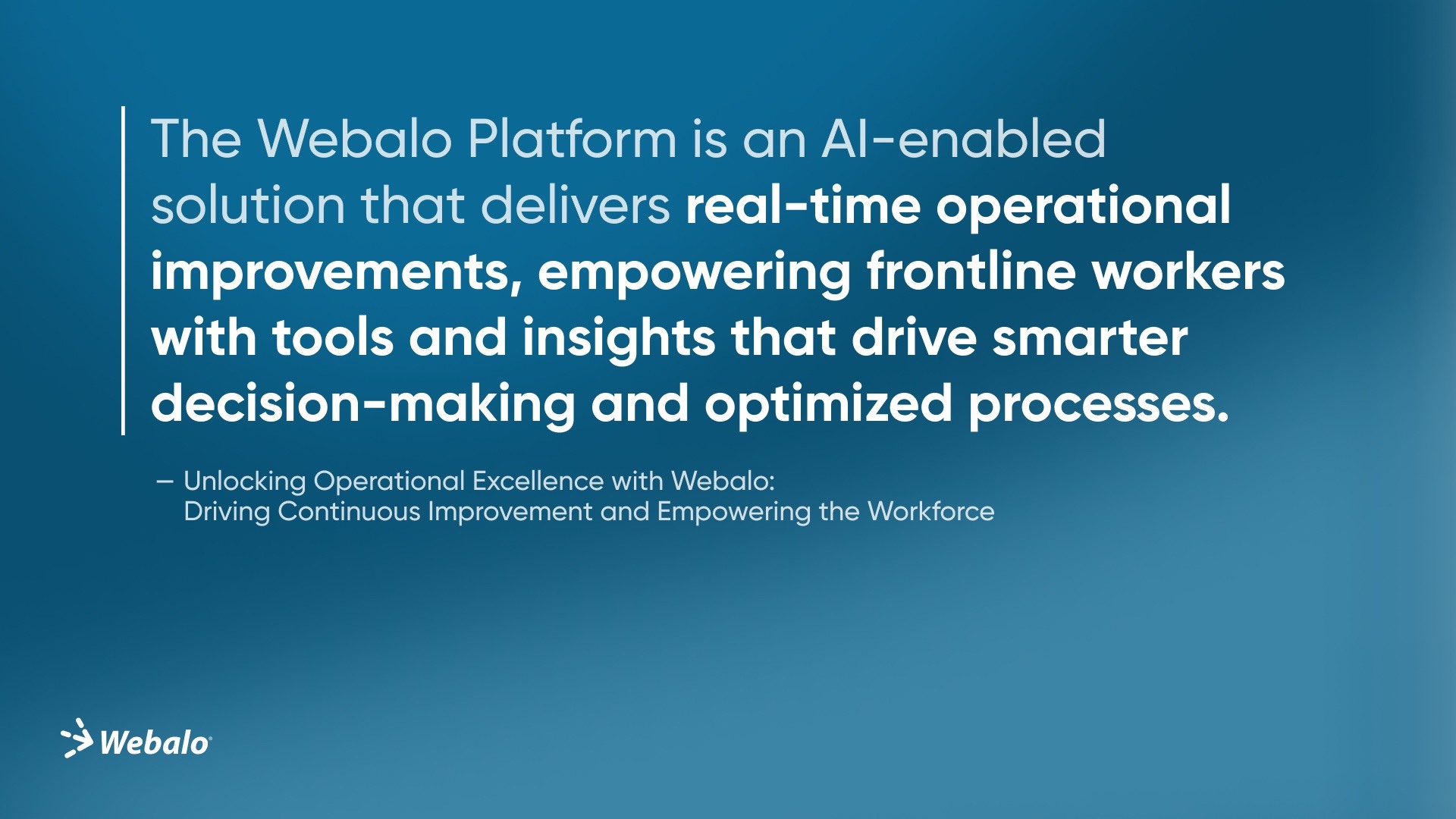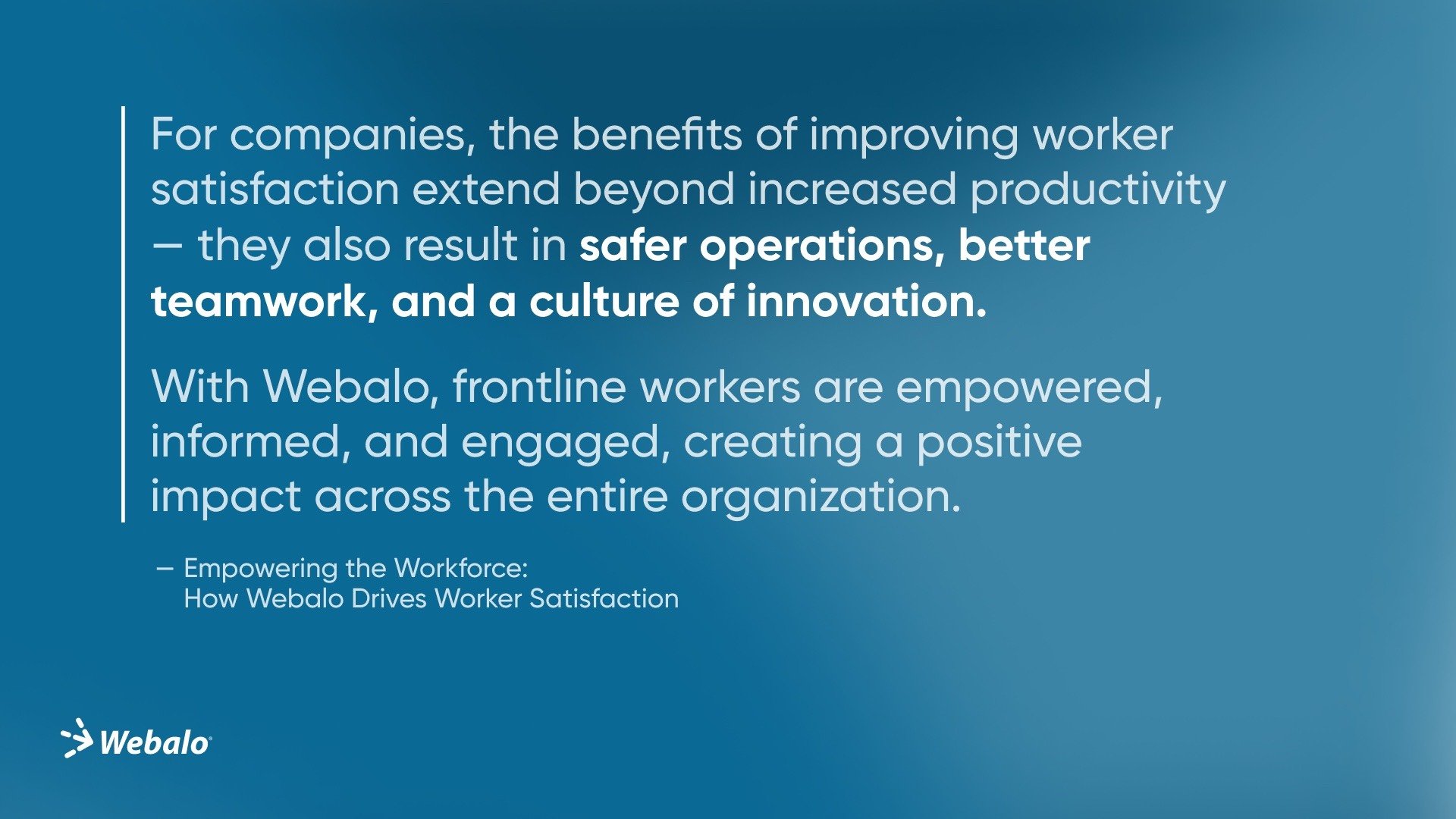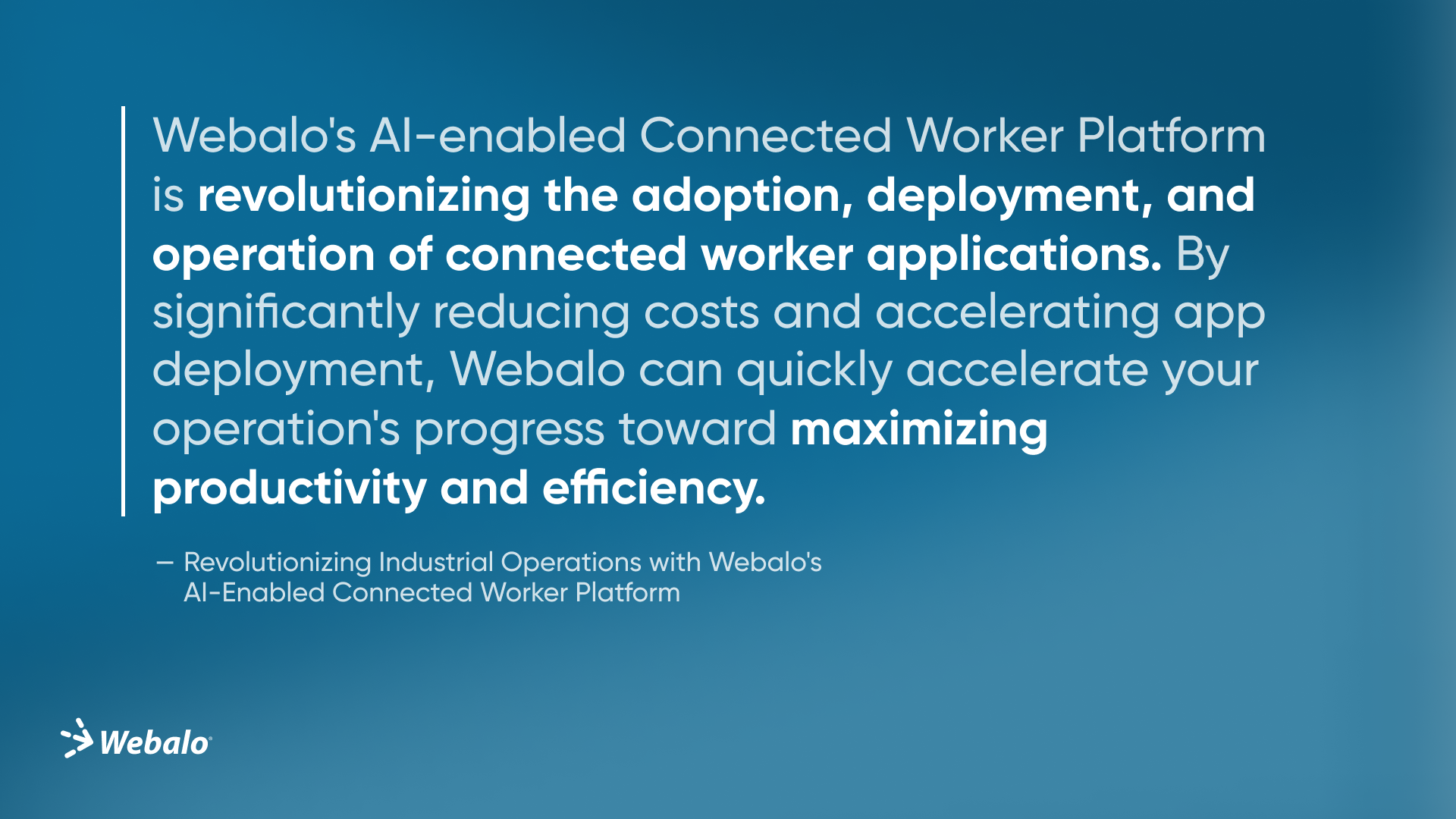Achieving operational excellence is essential for businesses aiming for long-term success. Companies continuously seek ways to streamline processes, enhance productivity, and empower their workforce. At the center of these efforts is the need to unify people, processes, and systems seamlessly. The Webalo Platform’s patented technology is purpose-built to meet these needs, transforming how organizations achieve continuous improvement across their operations.
The Power of the Webalo Platform
Webalo is an AI-enabled Platform that delivers real-time operational improvements. It empowers frontline workers with real-time information and insights that drive smarter decision-making and optimized processes. By focusing on the dynamic interplay between people, processes, and systems, Webalo ensures that operations flow smoothly from the shop floor to the corporate office.


